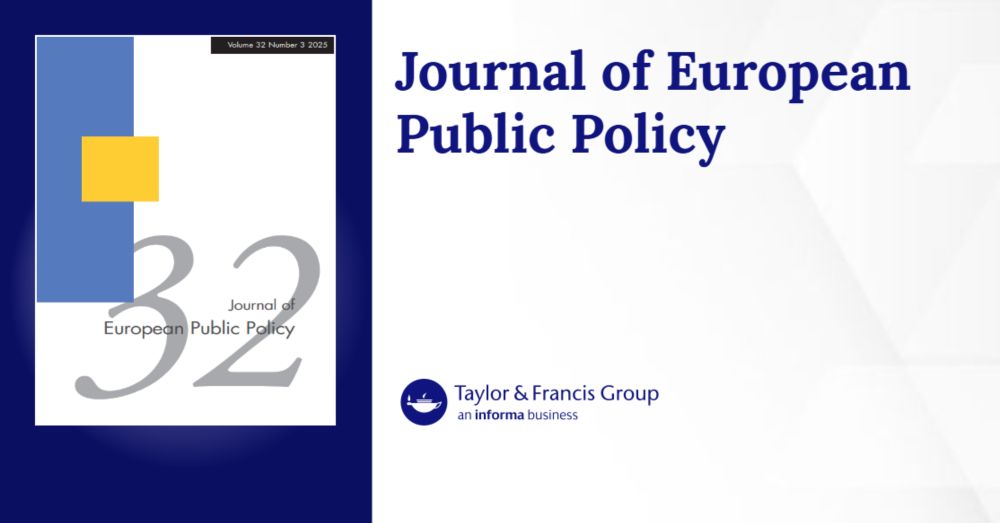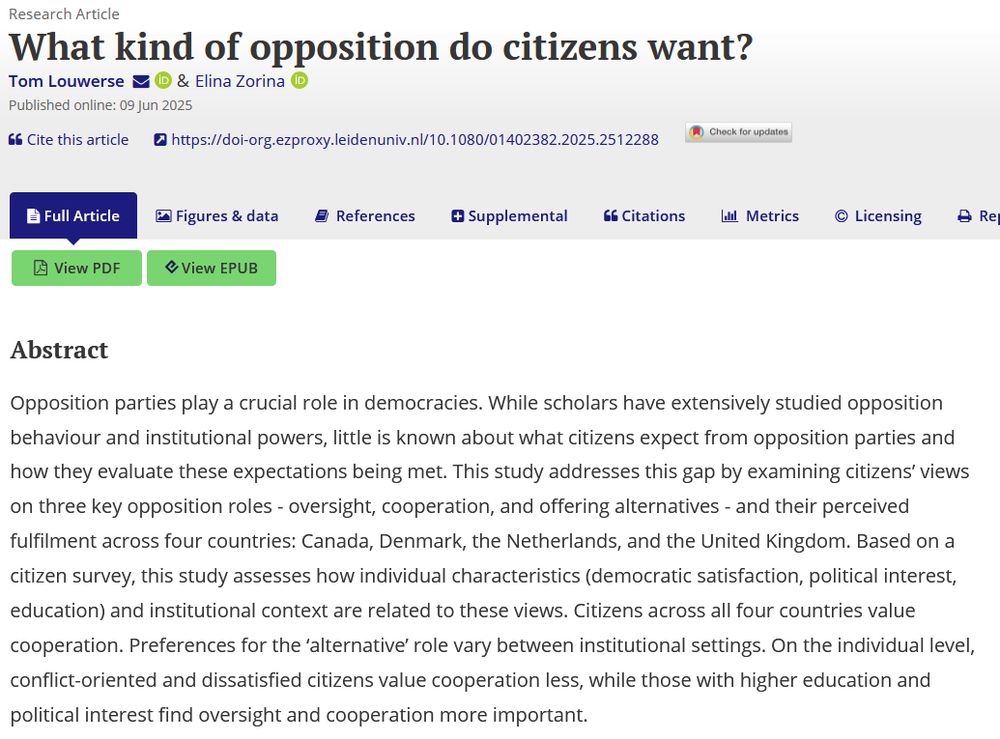Elia Zorina
@elinazorina.bsky.social
1K followers
340 following
33 posts
📚 Commissioning Editor @springernature.com
🗃️ ex-PhD candidate '25 @polscileiden.bsky.social, democratic legitimacy beliefs, voting behavior, political parties https://who-opposes.netlify.app/
🎓 MA '20 @ceu-polsci.bsky.social
💪 '17 Alumna Bard-Smolny CCE
Posts
Media
Videos
Starter Packs
Pinned
Elia Zorina
@elinazorina.bsky.social
· Jun 11
Elia Zorina
@elinazorina.bsky.social
· Jun 11
Elia Zorina
@elinazorina.bsky.social
· Jun 10
Reposted by Elia Zorina
Reposted by Elia Zorina
Alessia Aspide
@aspidea.bsky.social
· Jun 2

The mass politics of public debt, immigration, and austerity
Several European governments are confronting both high public debt and ageing populations. Policymakers will confront the unpopular choices of austerity, increasing immigration, or continuing to le...
doi.org
Reposted by Elia Zorina
Elia Zorina
@elinazorina.bsky.social
· May 23
Elia Zorina
@elinazorina.bsky.social
· May 23
Elia Zorina
@elinazorina.bsky.social
· May 23
Elia Zorina
@elinazorina.bsky.social
· May 23
Elia Zorina
@elinazorina.bsky.social
· May 23
Elia Zorina
@elinazorina.bsky.social
· May 23
Elia Zorina
@elinazorina.bsky.social
· May 23
Elia Zorina
@elinazorina.bsky.social
· May 23
















